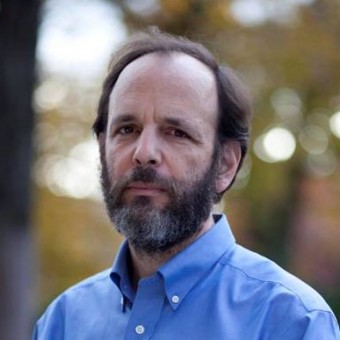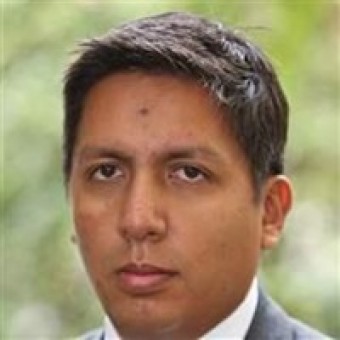Workshop: The Politics of Science and Innovation Policy
Program Areas – Science and Technology Policy
March 17-18, 2016
The Brookings Institution
1775 Massachusetts Ave NW, Washington, DC 20036
The primary goal of this workshop is to produce a set of interesting questions for the community of researchers and practitioners working on science and innovation policy. Our questions will be different to those of other agenda setting workshops in that we will emphasize the politics of policy in this domain.
A workshop in three parts: After introductory remarks, the first session sets the agenda and proposes two perspectives of science and innovation policy, that of the politicians and that of scientists. The last session is designed to put it all together and collect notable questions. The longer part in the middle is devoted to four “commandments” of science and innovation policy, and seeks to anchor the discussion around the politics of this wisdom.
Format: The four commandment sessions are planned to take 80 minutes each, consisting of a provocation qua thematic introduction (20 minutes), a panel discussion (30 minutes), and plenary discussion (30 minutes).
Essays: We also have commissioned provocation essays that touch on several aspects of the politics of science. We invite you to read them, consider their content, and hopefully you will feel stirred to raise questions about the essays, the specific topics they address, and the larger questions they engage. Click on the links below to read the draft essays:
- Susan Fitzpatrick: The lore of biomedical science policy; the case of brain science.
- David Goldston: What do politicians believe about science and innovation?
- Monica Gaughan: The not-so-humble origins of the American professoriate.
- Mike Holland: Making choices: Do we have a policy for the allocation of R&D funds?
Participants: Short biographies of the workshop participants may be downloaded here.
Thursday, March 17
Open doors, 8:30 AM.
Arrival, registration, and breakfast.
Prologue, 9:00 AM.
Introductions all around and ground rules.
Opening remarks, 9:30 AM.
Does science and innovation policy matter? Daniel Sarewitz
Some thoughts on the politics of policy. Walter Valdivia
Session 1, 10:00 AM. What’s the talk on Mount Sinai?
Two vantage points examined.
What do politicians believe about science and innovation policy? David Goldston
What do scientists believe about science and innovation policy? Colin Macilwain
Plenary discussion.
Coffee break, 11:00 AM.
Session 2, 11:20 AM. Commandment 1: Science and innovation policy must foster economic growth.
This commandment has driven much of science and innovation policy at least since the 1980s but what are the politics behind trying to cultivate and capture these gains? What are the politics of innovation’s distributional outcomes? What are the politics behind innovation policy targeted to foster growth in different economic sectors, industries, and regions? In this session we should explore the political forces of “economic growth” and related goals such as “job creation” in innovation policy. Apart from the occasional hot button issue (stem cells) or program (ATP), do the two parties share growth agendas? Or is growth sufficiently versatile to give cover to different political agendas? And who has this received wisdom left out of the debate? If economic growth has come to be fully accepted as the dominant rationale for R&D, what kind of political program could allow a competing goal to emerge?
Provocateurs: Beth Popp-Berman and Zak Taylor
Panelists: Fred Block, William Bonvillian, Mark Muro, Phillip Wallach
Lunch, 12:40 PM.
Optional group walk departing at 1:30 PM.
Session 3, 2:30 PM. Commandment 2: R&D funding, and the number of scientists, must forever grow.
The underlying proposition is that “more money for science and more scientists devoted to R&D automatically translate into better social outcomes.” Of course, such received wisdom is confirmed by its own political dynamic. The science lobby (including the university lobby) insists that stable or declining budgets do not serve the national interest, and increasing ones do. Are corporations increasingly on board with this message? What sort of politics do the R&D agencies engage in to advance their own interests? The social benefits of marginal increases in R&D budgets are famously difficult to nail down. But it should be easier to figure out whom directly benefits from rising R&D budgets and a growing cadre of scientists. Can there be a useful science of science and innovation policy without a basic understanding of science and innovation politics?
Provocateurs: Thomas Stossel and Susan Fitzpatrick.
Panelists: Erin Cadwalader, Robert Cook-Degan, Monica Gaughan, David Winickoff.
Coffee break, 3:50 PM.
Session 4, 4:10 PM. Commandment 3: Patents shall be protected and information shall be free.
The underlying proposition is that “patents are the sine qua non for innovation.” But patents also stifle innovation. One burning political question is then: what innovation is worth promoting and what is worth constraining in a patent regime. What are the political dynamics behind the strengthening of patent protection during the 1980s and 1990s, and the subsequent challenges to the regime from intellectual, business, and political fronts in the new century? How and why have the sides aligned around patent zealotry versus open information idolatry? Is this a political divide? Are we transitioning from one regime to the other? Is there any conceptual or political coherence to what lies on one side or the other?
Provocateurs: Arti Rai and Michael Calabrese.
Panelists: Susan Hennessy, Shobita Parthasarathy, Bhaven Sampat, Tania Simoncelli.
Break, 5:30 PM.
Dinner, 7 PM: Ankara, 1320 19th St., NW.
Inside the Politics of Science and Innovation Policy, Beth Robinson
Friday, March 18
Start of day, 8:30 AM.
Continental breakfast.
Session 5, 9:00 AM. Commandment 4: The government shall not infringe upon the freedom of the markets, except for… [insert favorite technology].
The political culture of the U.S. celebrates the role of private initiative in fostering innovation, and basic research gets bipartisan support because all agree it is justified by market failure. Democrats are usually more willing to venture downstream than Republicans, but in the end every member of Congress wants to funnel money to favorite agencies, projects, universities, and companies. How do various scientific constituencies participate in these games? Does the politics of the local trump any effort to develop national innovation strategies? And if so, do we know if that’s bad? Or is it just a policy design criteria? And if it’s bad now, do we know if it’s ever been better? Is science and innovation policy possible?
Provocateurs: Michael Holland and John Alic.
Panelists: Jason Day, Virginia Eubanks, David Hart, Kavita Patel.
Coffee break, 10:50 AM.
Session 6, 11:10 AM. Bringing it all together.
Notable questions that came out of (or were neglected in) workshop discussions:
Ten questions for researchers, Barry Bozeman.
Ten questions for practitioners, William Galston.
Plenary discussion.
End of workshop, 12:20 PM. Participants are invited to stay for lunch and informal discussion.
Meet the Project Team
Principal Investigators

